Physical Address
304 North Cardinal St.
Dorchester Center, MA 02124
Physical Address
304 North Cardinal St.
Dorchester Center, MA 02124

Beyond ordinary summer experiences lies the crucial difference between camps that truly transform teens and those that merely entertain them.
Just like you wouldn’t trust your family’s safety to an unlicensed pilot, you shouldn’t settle for mediocre summer camps when your teen’s growth and security hang in the balance. The difference between exceptional camps and average ones isn’t just about price—it’s about certified staff, proven safety protocols, and programs that genuinely transform young lives. You’ll discover what separates truly outstanding camps from the rest, and why cutting corners here could cost your child far more than money.
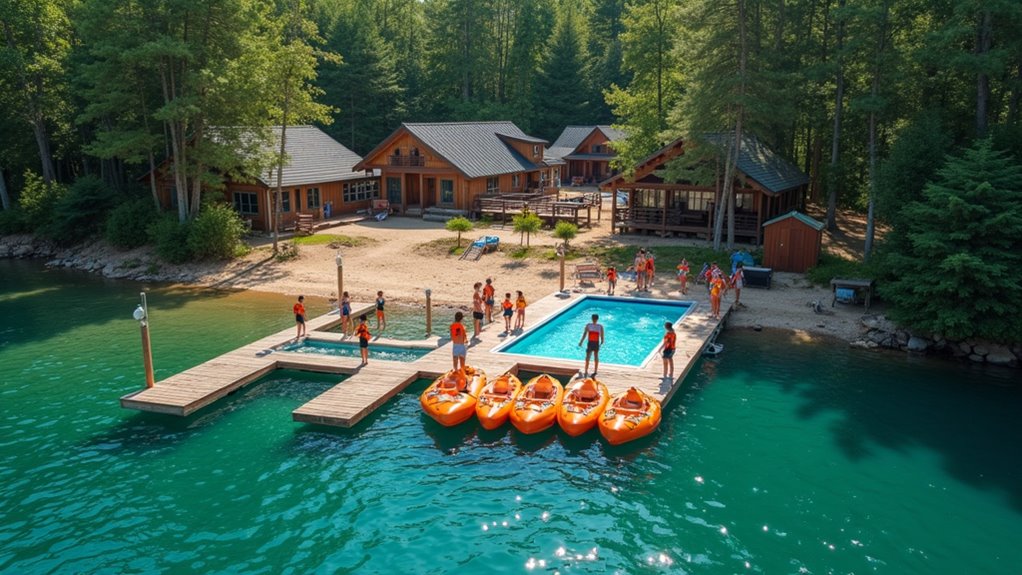
When you’re evaluating summer camps for your child, safety shouldn’t be negotiable—it’s the foundation that makes every adventure, friendship, and memory possible. You’ll want camps with certified lifeguards at all water activities, trained first-aid staff on-site 24/7, and detailed emergency action plans.
Look for facilities that conduct thorough background checks on every employee and maintain proper staff-to-camper ratios—typically 1:6 for younger kids and 1:8 for teens.
Don’t overlook the basics: secure perimeters, well-maintained equipment, and regular safety drills.
Top camps also provide clear communication channels so you’ll receive updates about incidents or weather changes.
Ask about their medical protocols, allergy management systems, and transportation safety records. If your camp offers specialized activities like fly fishing adventures, ensure they have certified instructors and appropriate safety gear for these unique experiences. These standards separate exceptional camps from mediocre ones.
Beyond basic safety requirements, the caliber of counselors and leadership determines whether your child experiences a life-changing summer or just another forgettable program.
Elite camps recruit staff with specialized certifications—wilderness first aid, lifeguard training, and activity-specific qualifications like archery or rock climbing instructors. You’ll find these counselors often hold degrees in education, recreation, or child development.
Look for camps where directors have extensive youth program experience, not just seasonal workers.
Premium facilities invest in ongoing staff training throughout the summer, covering conflict resolution, developmental psychology, and emergency protocols.
They’ll maintain low counselor-to-camper ratios, typically 1:4 for younger kids.
Ask about staff retention rates—quality camps keep experienced counselors returning year after year, creating consistency your child will benefit from immensely.
Top-tier camps also ensure counselors are equipped with comprehensive survival kits containing essential emergency supplies that enable quick response to any outdoor challenges or unexpected situations.
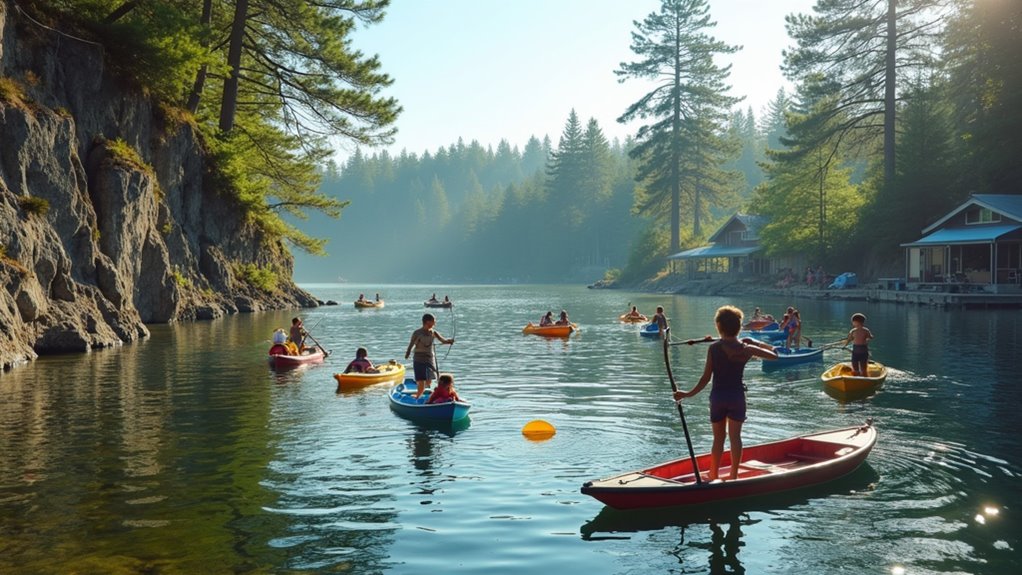
While traditional camps offer broad activities, specialized programs deliver focused skill development that transforms casual interests into genuine passions. You’ll find remarkable value in STEM camps that blend coding, robotics, and engineering challenges.
Sports-specific programs elevate athletic abilities through professional coaching and advanced training techniques you can’t replicate at home.
Creative arts camps immerse your child in intensive music, theater, or visual arts instruction. They’ll work with industry professionals and perform in real venues.
Leadership and entrepreneurship programs teach business fundamentals, public speaking, and project management – skills that’ll benefit them throughout life.
Adventure camps focusing on wilderness survival, rock climbing, or marine biology create confident, resilient kids. These specialized experiences cost more than general camps, but they’re investments in your child’s future expertise and confidence. Just as parents research thoroughly before making major purchases to avoid common mistakes, taking time to evaluate specialized camp programs ensures you choose the right fit for your child’s interests and goals.
Not every camp that promises specialized excellence delivers on that promise, and some warning signs can save you from costly mistakes and disappointed kids. Watch out for camps with unusually high staff turnover – experienced counselors matter more than fancy facilities.
Be wary of programs that can’t provide specific details about daily schedules, safety protocols, or staff qualifications when you ask direct questions.
Red flags include vague marketing language without concrete examples, reluctance to let you visit beforehand, or pressure to decide immediately without time to research.
Check if they’re properly licensed and insured. Trust your instincts if communication feels unprofessional or dismissive of your concerns.
Quality camps welcome questions and transparency because they’re proud of their standards. Just as climbers need proper preparation and guidance to successfully conquer Mount Kilimanjaro, children need well-structured programs with experienced leadership to have meaningful camp experiences.
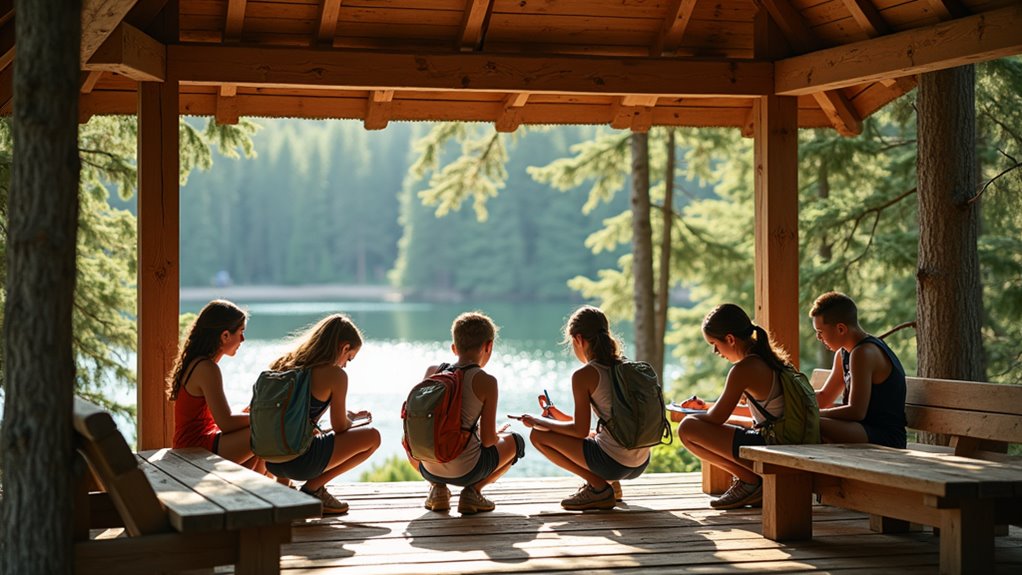
Since every camp operates with distinct values and teaching methods, you’ll want to dig deeper than glossy brochures to understand what really drives their program. Start by examining their mission statement—does it align with your child’s needs and your family’s values?
Ask specific questions during tours: How do they handle conflict resolution? What’s their approach to skill-building versus free play? Do they emphasize competition or collaboration?
Watch staff interactions with campers to gauge their educational philosophy in action. Request references from families whose children attended previously. Review their daily schedules to see if activities match their stated goals.
A camp focused on creativity should offer diverse arts programming, while one promoting leadership should provide meaningful responsibility opportunities. Just like choosing between renting or buying a boat for different needs, selecting a camp requires weighing the specific benefits each program offers against your family’s unique situation. This research guarantees you’ll find the perfect philosophical match.
Premium summer camps can cost anywhere from $3,000 to $15,000 or more for multi-week programs, so you’ll need a solid financial strategy before diving into applications. Start budgeting early—ideally a year ahead—to spread costs across manageable monthly payments. Many top-tier camps offer payment plans, scholarships, and need-based financial aid, so don’t let sticker shock deter you immediately.
Consider what’s truly included: meals, activities, equipment, transportation, and overnight accommodations. Some camps charge extra for specialized programs or off-site excursions. Compare total costs, not just base fees.
Explore creative funding options like family contributions for birthdays, tax-advantaged education savings accounts, or even having your child contribute through chores or part-time work. For camps with outdoor adventure components, mountaineering programs may transition from hobby activities to serious skill-building that could influence future career interests. The investment in their growth and memories often proves invaluable.
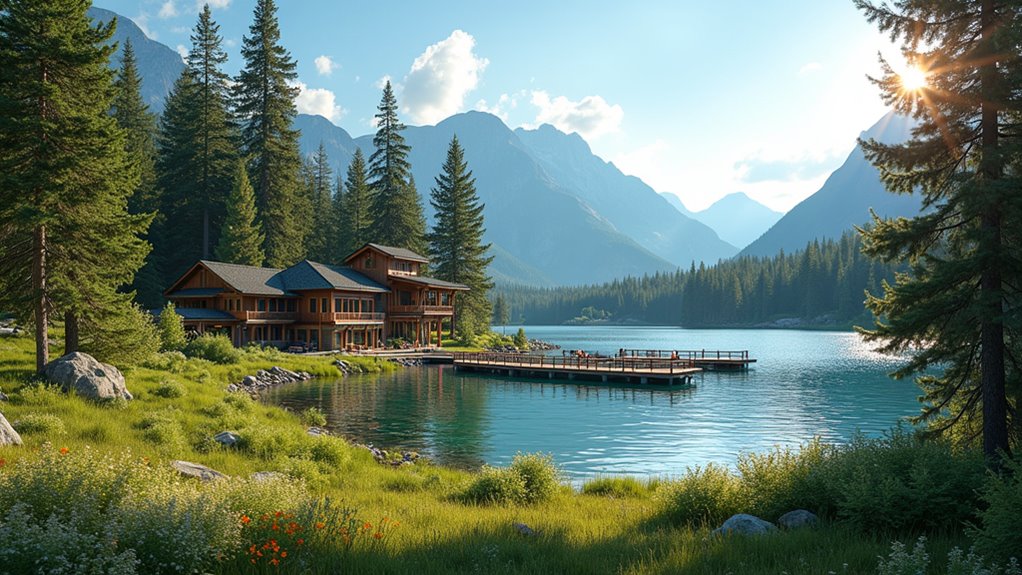
When you’re evaluating premium summer camps, the physical setting and facilities often reveal more about program quality than glossy brochures ever could. You’ll want to look for camps situated on spacious, well-maintained grounds that offer natural exploration opportunities alongside structured activities.
Exceptional camps feature purpose-built facilities: modern dining halls with commercial kitchens, climate-controlled cabins with proper ventilation, and specialized spaces for arts, sciences, and sports.
You should see updated safety equipment, well-maintained waterfront areas with certified lifeguards, and clear emergency protocols posted throughout.
The best locations balance accessibility for families with immersive natural settings. Look for camps that’ve invested in infrastructure upgrades while preserving their outdoor character.
Quality facilities demonstrate a camp’s commitment to both safety and enriching experiences that’ll create lasting memories. Consider camps that offer diverse family camping activities designed to engage participants of all ages and skill levels.
While impressive facilities matter, the real proof of a camp’s impact lives in the voices of those who’ve experienced it firsthand. You’ll discover authentic insights when you dig into alumni stories and parent testimonials that reveal lasting transformations.
Look for these telling signs of excellence:
Don’t settle for generic praise like “great experience.” Seek detailed accounts that paint vivid pictures of personal growth, meaningful challenges overcome, and life-changing moments that define truly exceptional camps.
When researching your options, consider exploring kid-friendly camping spots across the country to find locations that consistently receive positive feedback from families.
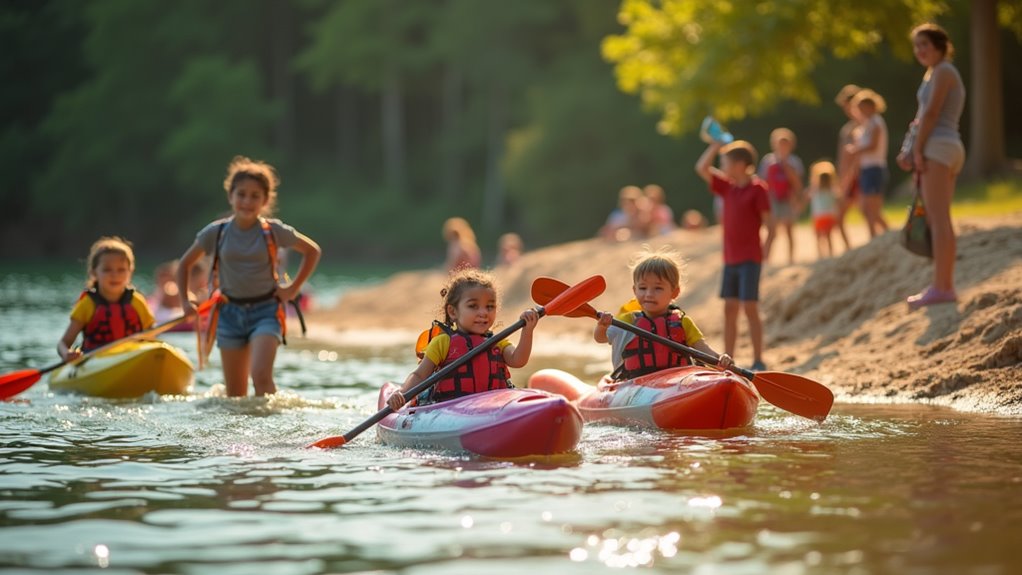
Because children’s developmental needs shift dramatically from elementary through high school years, exceptional camps design their programming with laser focus on age-specific growth opportunities. You’ll notice top camps tailor activities to match cognitive abilities and social-emotional stages.
Younger campers thrive with hands-on exploration, creative play, and basic skill-building that builds confidence.
Middle schoolers need structured challenges that develop independence while providing peer connection opportunities.
High schoolers benefit from leadership roles, complex problem-solving, and real-world application experiences.
Look for camps that don’t use one-size-fits-all approaches. The best programs create distinct age groups with specialized counselors trained in developmental psychology.
They’ll adjust communication styles, activity complexity, and supervision levels accordingly.
You’ll see meaningful growth when camps match their programming intensity, duration, and expectations to your child’s developmental stage rather than forcing advanced concepts on unprepared minds. When camping with kids, it’s essential to apply these same developmental principles to ensure activities match your child’s abilities and interests.
Since premier summer camps fill their rosters months before summer arrives, you’ll need to start your search and application process much earlier than you might expect. Top-tier camps often have waiting lists by January for the following summer, so timing is absolutely vital.
Here’s your strategic timeline:
Don’t wait until spring to begin this process – you’ll likely face disappointment. The most coveted specialty camps, overnight programs, and exclusive day camps operate on first-come, first-served basis.
Starting early gives you leverage to compare options and negotiate if needed. When evaluating your options, remember that the perfect summer camp should align with your teenager’s interests, skill level, and personal growth goals.
You’ve done the homework—now it’s time to take the leap. Like finding Goldilocks’ perfect porridge, the right camp won’t be too challenging or too easy, but just right for your teen’s growth. Don’t settle for anything less than excellence when it comes to safety, staff, and programming. Your teenager’s summer adventure awaits, and with careful selection, you’ll open experiences that’ll shape their character long after the final campfire burns out.